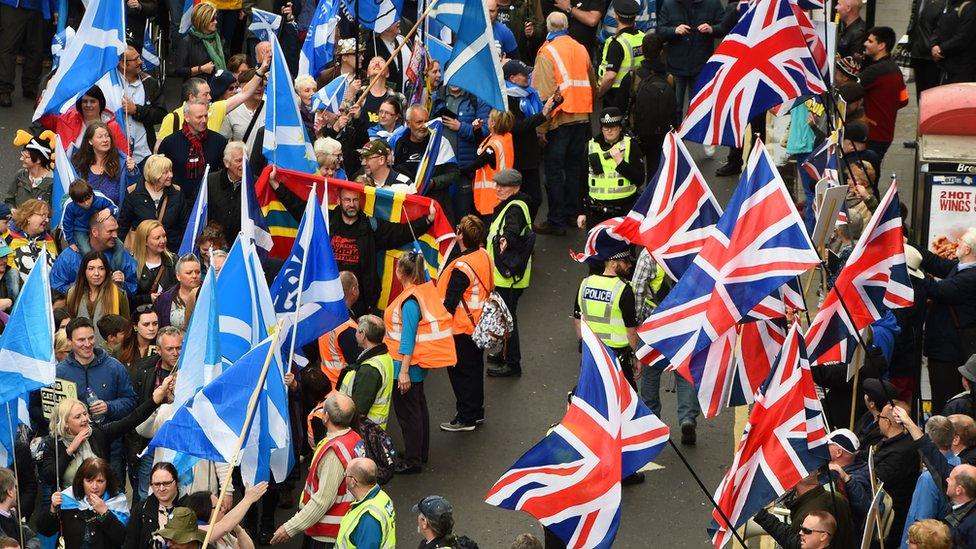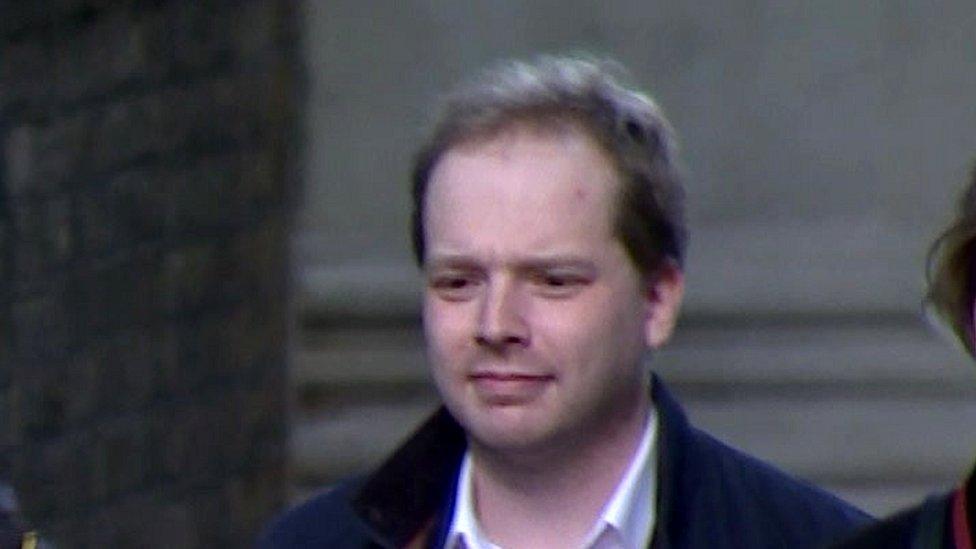What next for PM's Union plan as second adviser quits?
- Published

In less than three months, voters in Scotland will go to the polls and, if the SNP win, calls for another independence referendum will grow.
In Northern Ireland, there is tension over how the Brexit deal is working and the impact on trade with the UK.
In Wales, support for independence may still be a minority sport, but it is one more people appear to be talking about.
So Boris Johnson's strategy on the Union is important. It's perhaps the most important issue facing his government aside from the pandemic and its aftermath.
Oliver Lewis was brought in to head No 10's Union unit at the start of the month as part of a shakeup.
Insiders argued he was a serious player in Mr Johnson's inner circle - someone who had the prime minister's ear and could get things done to ensure more cooperation across the UK.
Well-connected sources said the appointment was a sign the prime minister was taking the issue extremely seriously - bringing one of his trusted lieutenants from the Vote Leave campaign in to spearhead the fight to save the UK.
Just over a fortnight later, that plan lies in tatters.
Mr Lewis has dramatically quit the job - and now the prime minister is looking for his third head of the Union unit in as many weeks - as the clock ticks loudly ahead of May's election.
Firstly, what changed in a fortnight?
The answer appears to have been the balance of power in Number 10.
There was a shakeup of special advisers in Downing Street last week, which saw some of Michael Gove's allies promoted.
Among them was Henry Newman - who has been a key player in Mr Gove's work with devolved administrations in recent months.
Mr Newman has a keen interest in the union. He is also very close to the PM's fiancée Carrie Symonds.
Insiders say Mr Lewis and Mr Newman don't get along.
As the lay of the land became clearer, Mr Lewis decided to leave.
He was one of the last of the Vote Leave faction left in Number 10 - after the departure last year of Dominic Cummings and Lee Cain.
It seems he has been a victim of the latest power struggle in Downing Street.

Oliver Lewis is a former ally of Dominic Cummings
These sort of faction fights at the heart of government are fascinating to people in Westminster - but they are also more than just palace intrigue.
Some fear that, despite some high-profile personnel changes and a new chief of staff, Boris Johnson is still struggling to steady the No 10 ship.
Although we've seen fewer high-profile U-turns and tensions have not been spilling out into the open as much, not everything is calm below the surface.
In the words of one source: "Everything just needs to settle down in there."
But it also matters than Mr Johnson is again looking for someone to oversee his plans to shore up the Union.
There has been discussion about the best way to approach polls suggesting increased support for Scottish independence.
Beyond saying no to another referendum, Downing Street also has to decide how to say no.
Some have suggested a pre-emptive approach, announcing a review of the UK's power structures ahead of May.
Others want a more combative approach - making clear another referendum is off the cards for the foreseeable future.
There's the question of how Downing Street will respond if an SNP Scottish government go ahead with a bill for a referendum - and dare the UK government to challenge them in court.
I expect Mr Johnson will want to get a new head of the Union unit in post sooner rather than later. Whoever gets the job won't expect it to be an easy one.